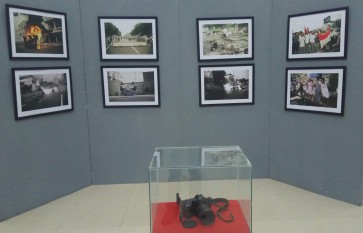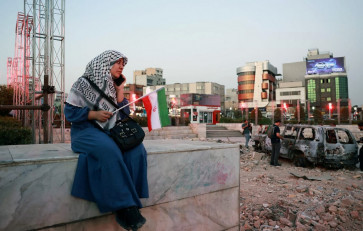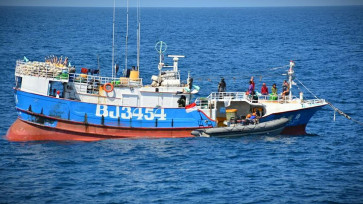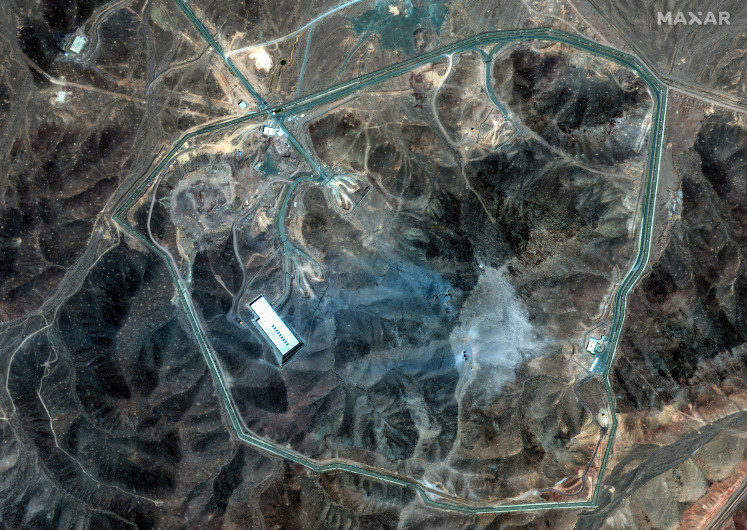Popular Reads
Top Results
Can't find what you're looking for?
View all search resultsPopular Reads
Top Results
Can't find what you're looking for?
View all search resultsGraft death sentence demand raises questions on deterrence
Capital punishment for corruption rare in Indonesia
Change text size
Gift Premium Articles
to Anyone
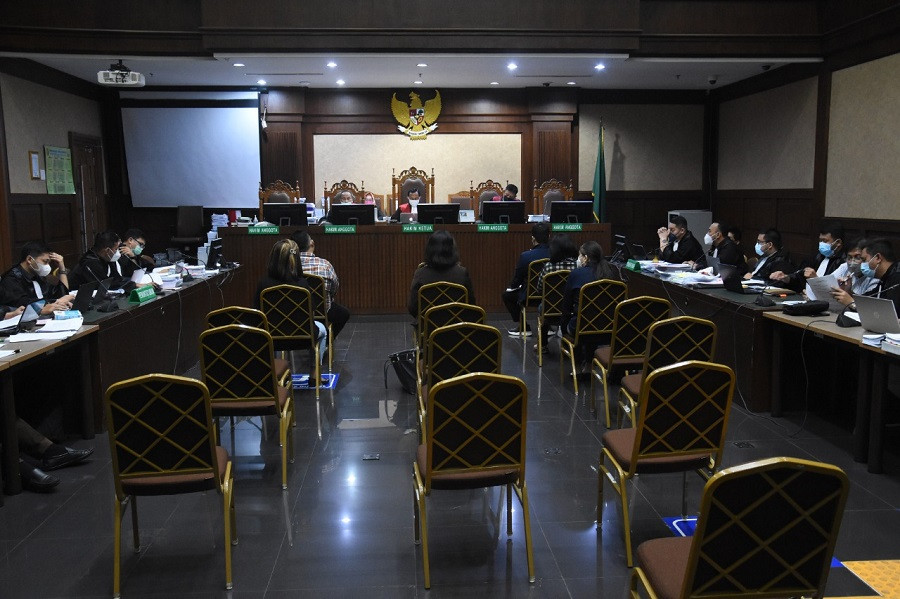
P
rosecutors from the Attorney General Office’s (AGO) recently demanded that businessman and recidivist Heru Hidayat be sentenced to death for his involvement in one of Indonesia's largest graft cases, in a rare move against white-collar crime.
But this has raised questions on whether capital punishment is a deterrent to corruption.
Heru is accused of stealing Rp 12.6 trillion (US$875 million) from state-owned PT Asabri, which manages insurance and pension funds for the military, the police and employees of the Defense Ministry, in a case that also implicates at least 22 other people.
Prosecutors also demanded that the court order Heru to pay fines of the same amount with the money he stole. The Asabri case is estimated to have incurred Rp 22.78 trillion in state losses.
Previously, Heru, along with another businessman, was found guilty of corruption and money laundering in one of Indonesia’s largest economic crimes pertaining to state insurer PT Asuransi Jiwasraya. They were each sentenced to life in prison in October last year for causing at least Rp 16.8 trillion in state losses.
Prosecutors in the Asabri case cited Heru's repeat offense as an incriminating factor, along with the huge state losses caused.
In a statement after the trial, Heru’s lawyer, Kresna Hutauruk, argued it was not a repeated offense because the Asabri case happened before Heru’s conviction in the Jiwasraya case, kompas.id reported.
A month before the prosecutors presented the sentence demand at court, Attorney General Sanitiar Burhanudin announced they were seeking the death sentence for those found guilty in the Jiwasraya and Asabri cases to “provide a sense of justice” to the public.
Read also: Capital punishment proposal for graft convicts raises eyebrows over sentence disparity
This would be a rare use of the death sentence in Indonesia, though it was not the first time an AGO prosecutor demanded capital punishment for graft convicts.
In 2006, AGO prosecutors demanded the death penalty for late businessman Ahmad Sidik Mauladi Iskandar Dinata, also known as Dicky Iskandar Dinata, for allegedly stealing billions of rupiah from state-owned lender Bank Negara Indonesia (BNI) in a fraudulent loan scam, citing repeated offenses. The BNI case was his second graft conviction after he was sentenced to eight years in prison in a separate case in 1991. The court later sentenced him to 20 years in jail and ordered him to pay a fine of Rp 500 million in the BNI case.
Prosecutors from the Corruption Eradication Commission (KPK), an agency established in the wake of the 1998 Reform Era to spearhead Indonesia's long battle against corruption, have never used capital punishment for graft convicts.
Death penalty in anticorruption law
The 2001 Anticorruption Law stipulates that death sentences may be handed down in the case of corruption committed under certain circumstances, like a national disaster or emergency, an economic or military crisis or for a repeat offender. The provision, however, is exclusive to people who embezzle from the state budget to enrich themselves and cause state losses. It is not applicable to bribery cases.
The debate over whether or not to sentence graft convicts to death emerged late last year when then-social affairs minister Juliari P. Batubara was named a suspect by the KPK for accepting Rp 32.48 billion in bribes from private vendors that supplied COVID-19 government food aid. The public at the time was furious with Juliari for stealing the people’s money during a health disaster. He is now serving 12 years in prison.
Read also: KPK warns that COVID-19 aid swindlers face death penalty
However, activist Lalola Easter from Indonesia Corruption Watch (ICW) said the death penalty was a form of "ancient punishment that is not relevant to the purposes of deterring corruption".
She pointed to the fact that some countries scoring well in the Corruption Perceptions Index released annually by global graft watchdog Transparency International had abolished capital punishment decades ago.
Denmark and New Zealand, two countries that no longer recognize the death penalty, ranked first in the latest 2020 index, each with a score of 88. Meanwhile, China, which is notorious for handing out death sentences, was in 78th place with a score of 42.
Impoverishing corruptors
Experts and activists are calling for another way to deter corruption and at the same time, recover state losses: by confiscating the assets of the graft convicts.
Criminal law expert Yenti Ganarsih said the AGO and KPK must thoroughly investigate each corruption case so that they could demand significant fines that would impoverish the perpetrator.
Read also: Indonesia’s war on graft is in tatters. Now what?
Investigators and prosecutors should maximize the use of the 2010 law on money laundering, which allows the government to seize corruptors’ assets, considering the asset forfeiture bill has yet to be passed by the House of Representatives, Lalola said.
ICW data shows that last year, prosecutors filed money laundering charges against 20 out of 1,298 graft defendants.
President Joko "Jokowi" Widodo, in his speech for an International Anticorruption Day celebration at the KPK headquarters in Jakarta on Thursday, urged lawmakers to immediately enact the asset forfeiture bill. He also encouraged the KPK and AGO to use both money laundering and corruption charges so that offenders face heavier punishments and the country could recover its stolen assets.

